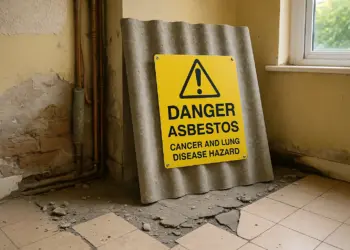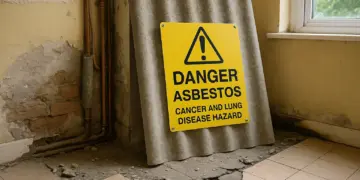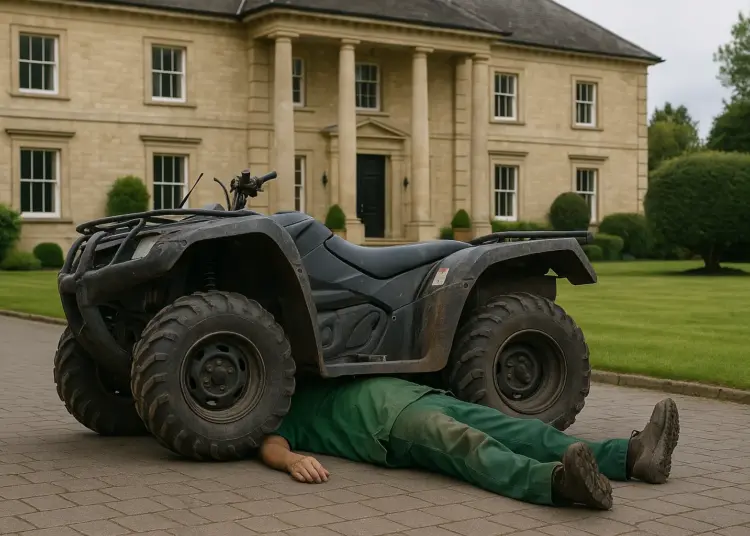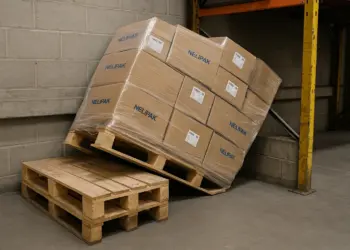Story Highlight
– Gardener found dead under quad bike at mansion.
– Incident occurred at £2.5 million luxury home.
– Nicholas Prest, 71, and Anthea Prest, 70 involved.
– Court proceedings address details of the incident.
– Investigation ongoing into circumstances of the gardener’s death.
Full Story
A gardener tragically lost his life under a quad bike at the residence of a prosperous couple in a case that has garnered significant attention. The incident occurred at a luxurious property valued at approximately £2.5 million, owned by Nicholas Prest, a 71-year-old defence chief, and his 70-year-old spouse, Anthea.
During the court proceedings, jurors were informed about the circumstances surrounding the fatal accident. The gardener’s body was discovered beneath the quad bike, prompting an investigation into the events leading up to the incident. According to reports, Prest had been using the vehicle on the grounds of their estate when the tragic accident occurred.
Witnesses recounted that the gardener was an experienced worker who had been employed by the Prest family for several years. Regrettably, the details surrounding the accident remain hazy, leading to numerous questions regarding safety protocols at the lavish estate where the tragedy unfolded.
The Prest family issued a statement expressing their profound sadness over the loss of the gardener, highlighting the bond that had been forged over many years of employment. “He was a valued member of our household, and his death has left an unfillable void,” Nicholas Prest stated, reflecting on the impact of the loss.
Moreover, the court was presented with evidence that highlighted the couple’s affluent lifestyle, which includes their stunning mansion set within immaculate grounds. Neighbours described the estate as a hub of activity, with staff tending to the expansive gardens and maintaining the property’s beauty.
The local community has expressed shock at the incident, with many residents recalling the gardener as a friendly face often seen tending to the gardens that adorned the estate. The tragic accident has stirred conversations about safety regulations in high-end households, especially concerning heavy machinery and the potential risks associated with their use.
Legal experts have pointed out that cases such as this usually prompt a thorough investigation into potential negligence and adherence to safety standards. “Such incidents can lead to serious scrutiny regarding whether appropriate safety measures were in place,” commented an expert in occupational health and safety.
As the investigation continues, the focus will likely be on understanding how the accident happened and what could have been done to prevent it. Family, friends, and former colleagues of the gardener are hoping for clarity in the coming weeks, as many seek answers to prevent future tragedies of a similar nature.
Additional commentary from local officials suggests that accidents involving heavy machinery should lead to renewed discussions on safety protocols within private households, especially those that employ multiple staff. This incident serves as a reminder of the responsibilities that come with such employment, underscoring the need for comprehensive training and safety measures to safeguard all workers.
The courts will now deliberate on this tragic loss, as the family of the gardener gathers to mourn the beloved individual who played such an integral role in their lives. The outcome of this case may not only provide justice for the gardener’s family but also foster a broader dialogue about workplace safety, particularly within affluent domestic environments.
In light of the grief felt by all parties involved, it is clear that further examination of safety practices in high-end residential properties is necessary. As the trial unfolds, the community and industry observers alike are awaiting developments that could lead to important changes in how such estates operate and maintain the safety of their staff.























This is a heartbreaking reminder that serious risk is present anywhere heavy equipment is used, including private homes. Employers and household managers must ensure thorough risk assessments, safe systems of work, appropriate training and supervision, and that equipment is suitable, maintained and fitted with safety controls. Where work is carried out by contractors or domestic staff it should be treated the same as any workplace with clear procedures for vehicle operation, exclusion zones and lone working. A prompt, transparent investigation and review of procedures at the property could prevent a similar tragedy and will help restore confidence in how safety is managed on high value estates.
This is heartbreaking and highlights that serious safety risks exist in all workplaces regardless of size or wealth. Employers must ensure proper risk assessments, safe systems of work and suitable training for anyone operating or working near quad bikes and similar machinery. Regular maintenance and appropriate supervision are also essential, and estates should treat domestic staff under the same health and safety standards expected in commercial settings. A transparent investigation and prompt implementation of any recommended improvements will be important to prevent further tragedies.